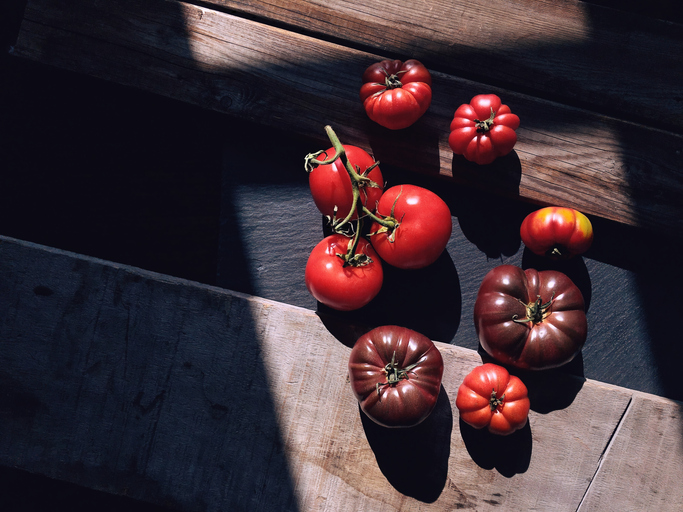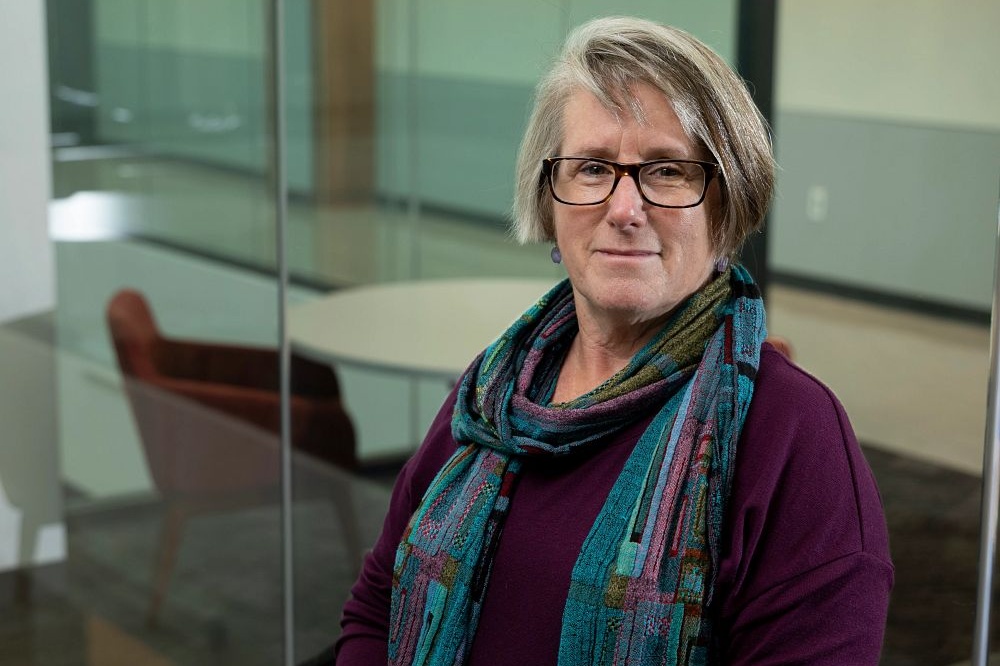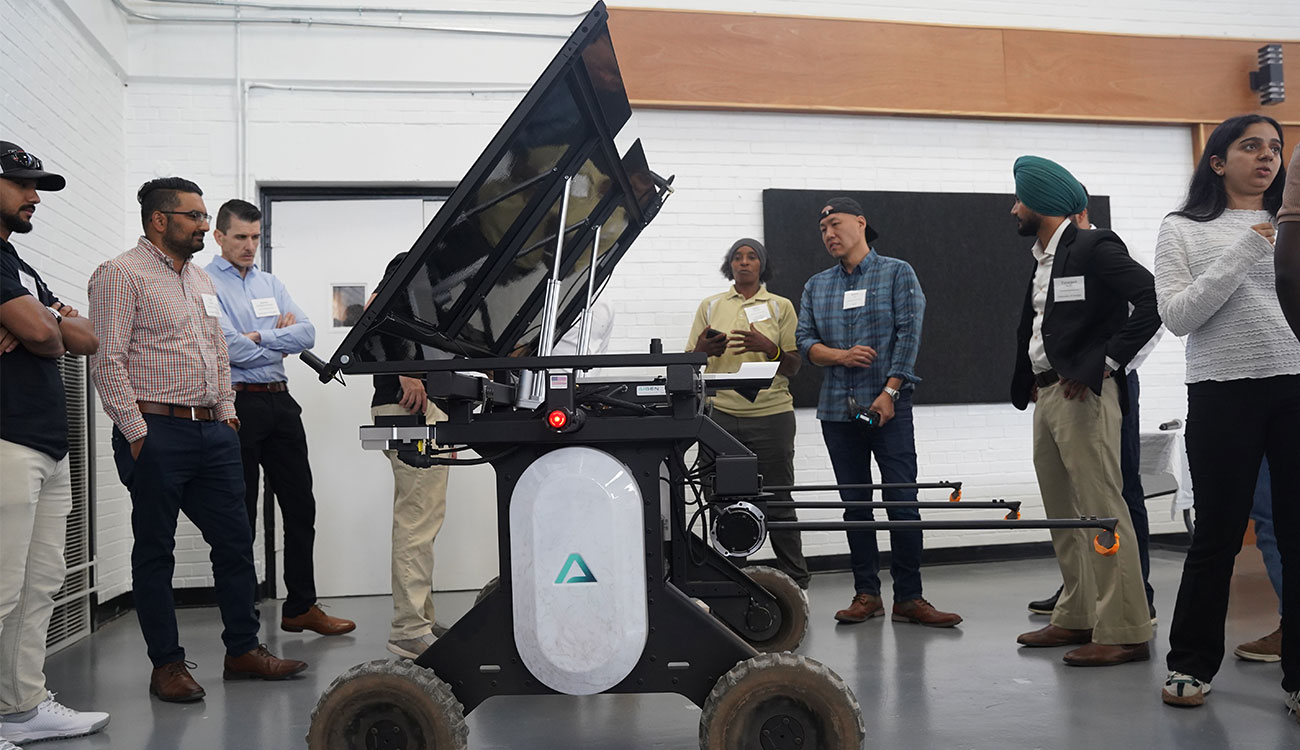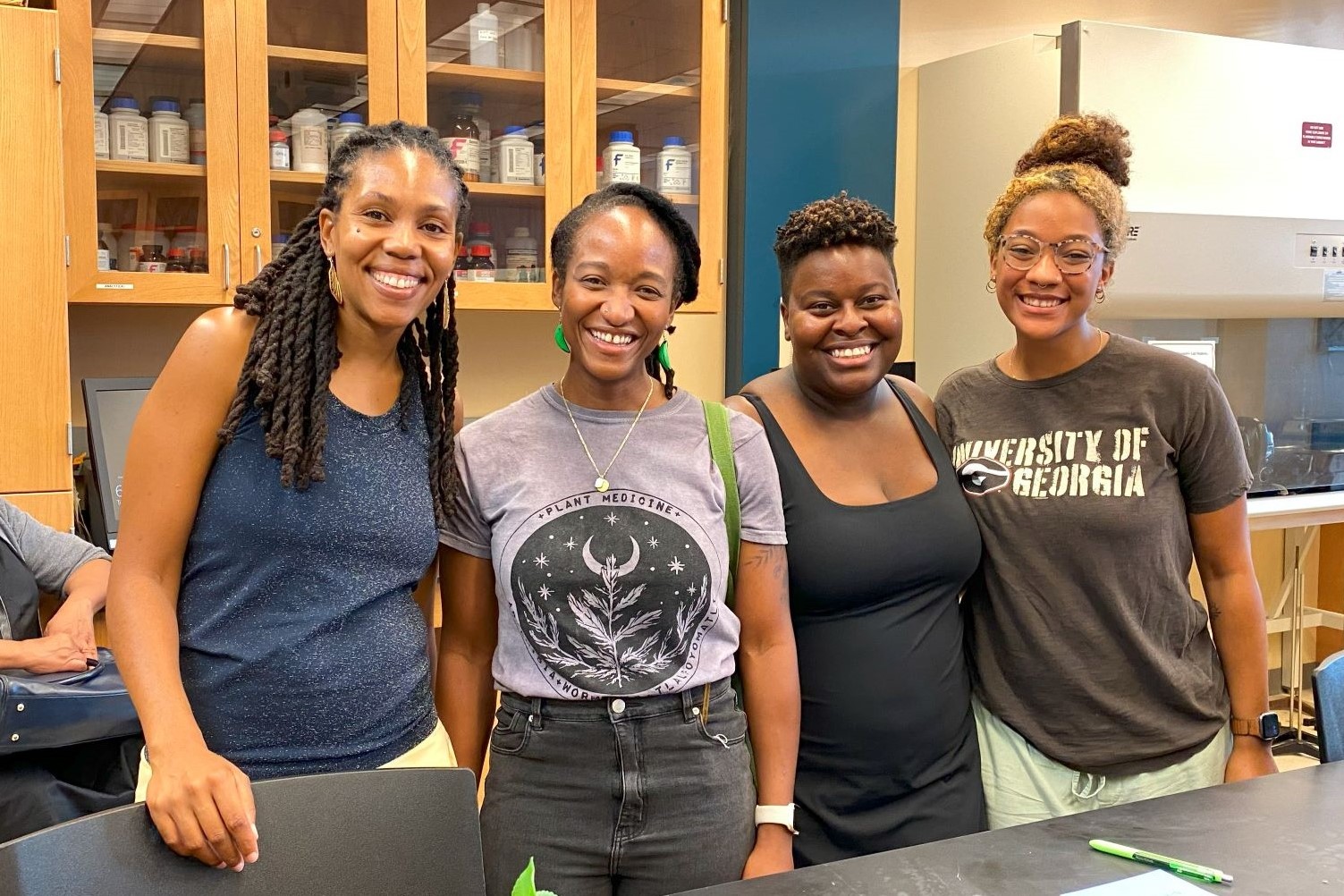
For Jennifer Jo Thompson, finding solutions to meet the increasing global demands for healthy, affordable and accessible food requires an un-siloed approach in higher education and leadership. To both conserve natural resources and equitably sustain communities, Thompson's approach draws from a diversity of backgrounds, disciplines and expertise.
An associate research scientist in the Department of Crop and Soil Sciences at the University of Georgia, Thompson is director of the Sustainable Food Systems Initiative and leads the Social Sustainability of Agrifood Systems Laboratory in UGA’s College of Agricultural and Environmental Sciences (CAES).
Representation and equitability are important to addressing the food system challenges that are disproportionately shouldered by nonwhite communities, Thompson said. According to the 2021 U.S. Department of Agriculture (USDA) census, Black households experienced food insecurity at nearly twice the rate of white, non-Hispanic communities. The census also showed that Black-operated farms make up only 1.7% of U.S. farms, 0.5% of U.S. farmland and 0.4% of U.S. agricultural sales.
Despite the pressing need for diversity and equitability, Thompson said there is a notable lack of diverse talent in the nation’s leading food and agricultural science programs. The National Center for Education Statistics reported that only 3% of agricultural degrees awarded in 2019 went to Black students, a statistic that parallels a gap in diverse employment among faculty at land-grant universities. And while predominantly white land-grant universities struggle to diversify faculty and student enrollment, historically Black colleges and universities and minority-serving institutions have been identified as two of America’s greatest underutilized resources for strengthening the scientific workforce.
“Together, the ‘wicked problems’ of food system inequality and student underrepresentation point to the need to rethink and recast food and agricultural science education to expand both sustainability and diversity of the field,” said Thompson.
Establishing a cross-institutional team
Now midway through a collaborative project funded by the USDA Higher Education Challenge Grant, Thompson is leading UGA’s Sustainable Food Systems Initiative in a collaborative project with the Food Studies Program at Spelman College, a historically Black women’s college in Atlanta that offers a minor in the field. Thompson noted that many of the program's graduates continue their studies in graduate programs in a range of fields, including food and agricultural sciences.
As an international leader in agricultural, environmental and horticultural sciences, UGA offers a wide variety of graduate degrees and research programs that could interest Spelman students, “but their alumnae often receive multiple competing offers for graduate funding. So the question is how do we make UGA an environment that Spelman students want to come to?” Thompson asked.
UGA and Spelman, who will equally split the $300,000 USDA award, are building a resilient partnership in hopes of increasing UGA recruitment of Spelman students who are interested in pursuing food and agricultural science graduate degrees.
Although institutions have attempted to address these challenges, few initiatives have been explicitly co-designed with, rather than for, people from various racial and ethnic backgrounds, said Thompson.
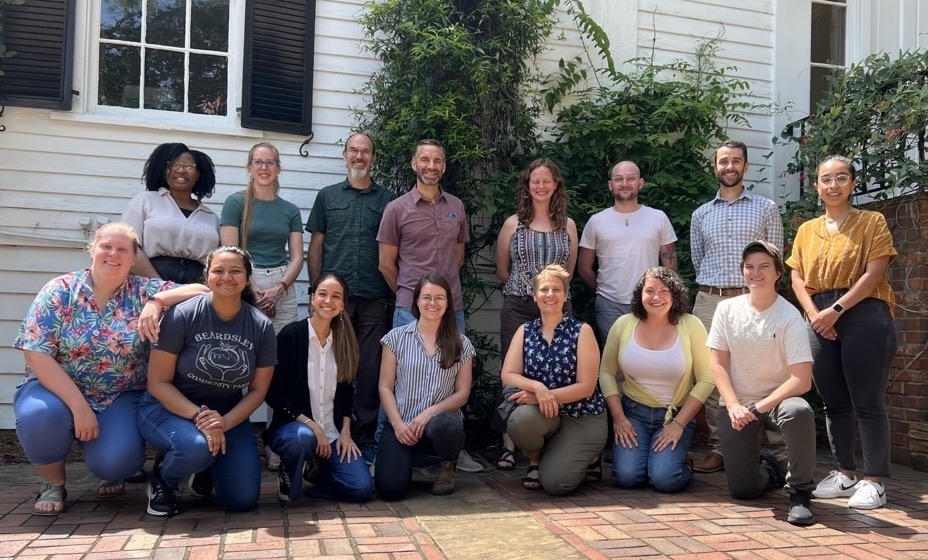
“We anticipate that this program will serve as a model for strengthening cross-institutional partnerships aimed at expanding racially inclusive curriculum and mentoring and increasing the representation of BIPOC (Black, Indigenous and people of color) undergraduate and graduate students in food and agricultural sciences programs,” she said.
Creating community across disciplines
Whitney Barr, who earned her undergraduate degree at Spelman and a master’s degree in landscape architecture at UGA with a certificate in sustainable food systems from CAES, now works as the food systems innovation fellow with the Atlanta Mayor’s Office of Sustainability and Resilience. As a graduate student at UGA, Barr worked with Thompson in 2020 through the National Needs Fellowship grant program. Drawing from her food systems work at Spelman, Barr examined past recruitment efforts Thompson and other faculty members used in trying to attract diverse applicants to National Needs Fellowship-funded graduate projects.
“We reflected on the reasons past recruitment strategies failed and looked for solutions to turn that around,” Thompson said. “Historically, recruitment efforts rely on the typical standardized methods of communications, such as flyers, emails, social media and word of mouth. When we saw those strategies fail to meet our objective, we decided a better approach would be to intentionally build relationships with partner institutions. Instead of utilizing a classic numbers-based approach, we want to create something more substantial.”
Using a synergistic strategy to build a durable, cross-institutional bridge, Spelman faculty are expanding the learning community around food and agricultural sciences to increase scholarship among their students. In anticipation of increasing recruitment of Spelman graduates, UGA faculty are working to build more inclusive curricula and mentorship skills for UGA faculty and graduate students through a series of professional development workshops.
“These workshops aim to provide faculty and future educators the knowledge and skills they need to ensure Spelman graduates and other BIPOC students get the kind of mentorship they’re looking for through graduate studies,” said Thompson.
A recent two-day workshop involving hands-on experiential learning drew faculty and student participants from the UGA departments of Food Science and Technology; Crop and Soil Sciences; Horticulture; Geography; Agricultural Leadership, Education and Communication; Entomology; and Ecology.
“We want to demonstrate that our faculty and graduate programs in food and agricultural sciences not only excel at helping students develop the necessary skills to find a career in the field but that we also have the kinds of classrooms and research groups where students will be welcomed, nurtured and empowered to be their best selves,” said Thompson. “I’m really proud to be a part of this project. It’s important work and I hope it can be viewed as a priority among my colleagues in CAES and other programs across campus. Hopefully, our continued relationship with Spelman will prove to be a valuable example for others to pursue.”

